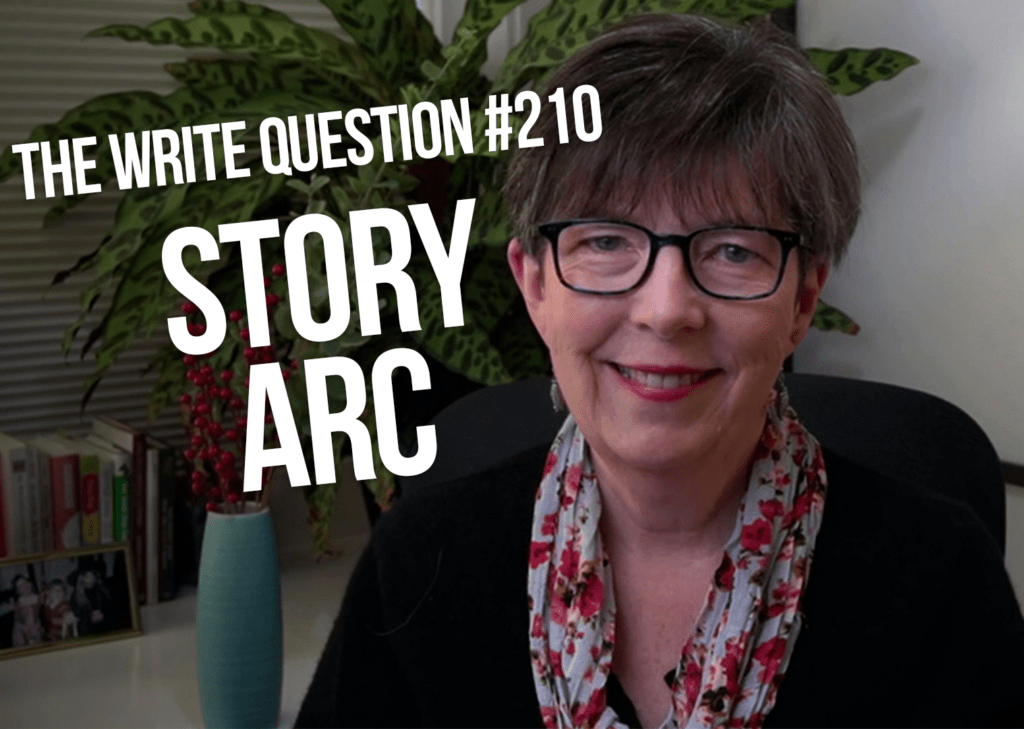Viewing time: 4 mins 28 secs
The Write Question is a weekly video podcast all about writing. Today’s question? How do you find a story arc for your memoir? If you have a question you’d like me to answer you can email me, tweet me @pubcoach, or leave a message for me at the Skype account, The Write Question.
Transcript:
How do you find a story arc for your memoir? That’s the topic I’m addressing today in The Write Question. I’m Daphne Gray-Grant, the Publication Coach.
I have a question from Lorna Blake, a writer based in Vancouver, British Columbia. Here’s what she’s asked by email…
“I’m writing a family memoir, but I’m having difficulty finding a story arc. The various incidents are all coming out as anecdotes. How do I deal with this problem?”
Thanks for your question Lorna. Good for you for recognizing this issue! It’s a big one, and some writers don’t even notice it.
Memoir, especially family memoir, is a challenging genre to write. It’s all too easy to get pulled into a chronological retelling of facts and anecdotes. And while this may well be enough for people who were related to Uncle Frank or Aunt Annabelle, it’s going to be incredibly boring for anyone who isn’t related.
What readers really want is a way to put all these stories into context. Some writers will describe a story arc as an emotional framework, others will call it a sense of purpose. I call it the point, as in what is the POINT you want to make with this book?
If you were an academic, you might call it your proposition, theory, hypothesis or premise.
So, how do you find it? First, don’t start writing too soon. Give yourself plenty of time to think and reflect on the point you’d like your memoir to make. This is not a decision that will come quickly or easily.
Reading a lot of memoirs by other authors will help you consider various ideas. For example, I recently read an interesting memoir by Deborah Copaken.
Titled Ladyparts, see link in the show notes, the memoir describes the author’s life in the context of various surgeries she’d had to have. In some ways, the concept — or story arc — works really well. Much of the book is about the failure of the American healthcare system. And it’s also about the sexism of the ’70s, ’80s and ’90s.
But in other ways the story arc failed her. I found the book about 25 to 30% too long and a bit too unfocused.
Now, I’d like to mention my favourite memoir of all time, by Elisabeth Tova Bailey. It’s called The Sound of a Wild Snail Eating. See link in the show notes. While an unnamed illness keeps Bailey bedridden, she watches and reflects on a wild snail that has taken up residence on her nightstand.
Sounds boring, doesn’t it? But the memoir is beautifully written, often funny and deeply insightful. It does not lack anecdotes, but it also offers so much more. It’s very brief, and you can likely read it in a couple of hours or less.
Look at books like this one and make notes on how the writer communicates their point. And then imitate their strategies.
Anecdotes will still play a role — don’t get rid of them — but they need to support your point, not the other way around.
Finally, let me wrap up with the words of Australian writer and actor Steve Bisley: “Writing a novel is easier than writing a memoir; you are not constrained by the truth.”
Lorna, if you’ve been thinking about your memoir for months and haven’t been able to discern your point, I suggest you give mindmapping a try. I provide a link with more information about that in the show notes.
*
Viewers, if you have any writing-related questions, I’d be happy to do a video on them. Just send me a quick email, daphne@publicationcoach.com, or put a note in the comments section of this YouTube video
And, if you’d like to learn more about how to make writing a happier and more rewarding process, check out my latest book Your Happy First Draft. I don’t sell it in bookstores or via Amazon. The only place to buy it is on my website, link on the screen below and in the show notes.
Links
The Sound of a Wild Snail Eating


